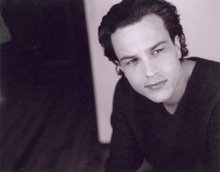LAS VEGAS, Nevada (AP) -- Internet radio broadcasters were dealt a setback Monday when a panel of copyright judges threw out requests to reconsider a ruling that hiked the royalties they must pay to record companies and artists.
A broad group of public and private broadcasters, including radio stations, small startup companies, National Public Radio and major online sites like Yahoo Inc. and Time Warner Inc.'s AOL, had objected to the new royalties set March 2, saying they would force a drastic cutback in services that are now enjoyed by some 50 million people. (Time Warner is also the parent company of CNN.)
In the latest ruling, the Copyright Royalty Board judges denied all motions for rehearing and also declined to postpone a May 15 deadline by which the new royalties will have to be collected.
However, they did grant leniency on one point, allowing the webcasters to calculate fees by average listening hours, as they had been, as opposed to the new system of charging a royalty each time every song is heard by an online listener. That exemption counts for last year and this year. After that, the new per-song, per-listener fee structure goes into effect.
Many webcasters say the sharply higher royalty fees will put them out of business. Talk of the ruling dominated a one-day meeting of Internet radio broadcasters being held in Las Vegas alongside the annual conference of the National Association of Broadcasters, a group representing local radio and TV stations.
N. Mark Lam, the CEO of Live365 Inc., a privately held company that aggregates audio streams from thousands of radio stations and other small webcasters, said that under the new royalty rules, "there is no industry."
Lam, who joined the venture capital-backed company about two years ago, said Live365 just barely broke even last year and had about 4.5 million unique listeners every month.
Also on Monday, several Internet radio broadcasters announced a campaign to raise awareness of the issue and encourage listeners to write to their representatives in Congress.
Small broadcasters have received relief from Congress in the past, benefiting from a law passed five years ago that gave them a break on royalty rates. The legislation allowed them to pay about 12 percent of their revenues instead of having to calculate per-song, per-hour rates like larger companies had to.
David Oxenford, a lawyer representing several webcasters, said the next step was likely an appeal to the U.S. Court of Appeals for the District of Columbia Circuit, but he noted that process could take at least a year. Meanwhile, he said, the prospects of successfully getting a court to block the decision of the royalty board judges is slim.
SoundExchange, a nonprofit group that collects the online royalties from webcasters and distributes them to record labels and artists, hailed the ruling in a statement and said it looked forward to working with Internet radio companies in order to ensure that the industry succeeds.
Jonathan Potter, the head of the Digital Media Association, which represents several large webcasters including Yahoo, AOL and Microsoft Corp.'s MSN network, said his group was not currently in talks with SoundExchange but may be soon. He said his group and other webcasters would be turning to Congress, where he said he sees "a lot of legislative support."
The royalties in question only cover digital transmissions of music, and don't apply to terrestrial radio stations, as traditional radio play is seen as a benefit for record labels by promoting sales of recorded music. Both digital broadcasters and regular radio stations pay a separate royalty to the publishers and composers of music.





